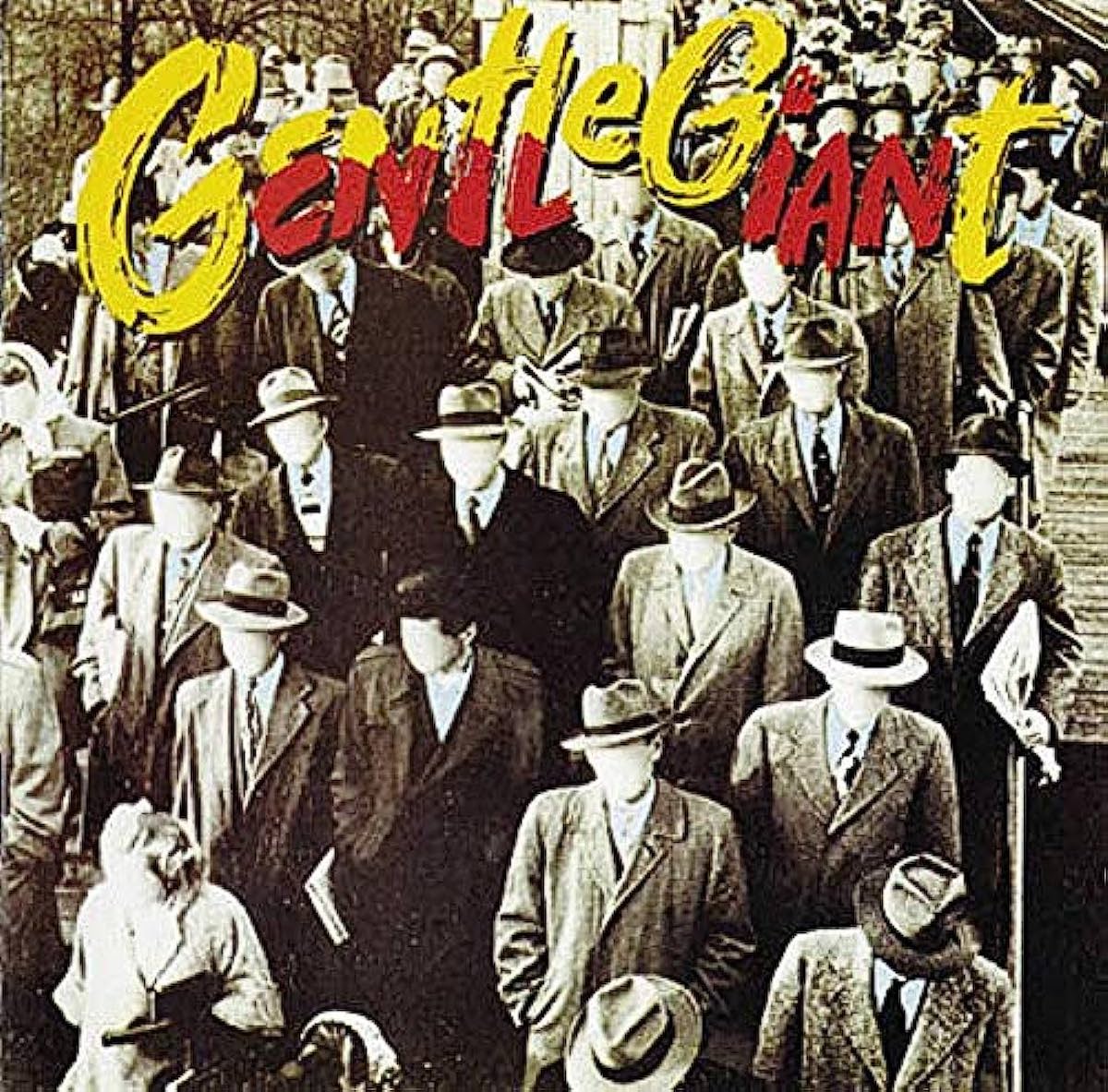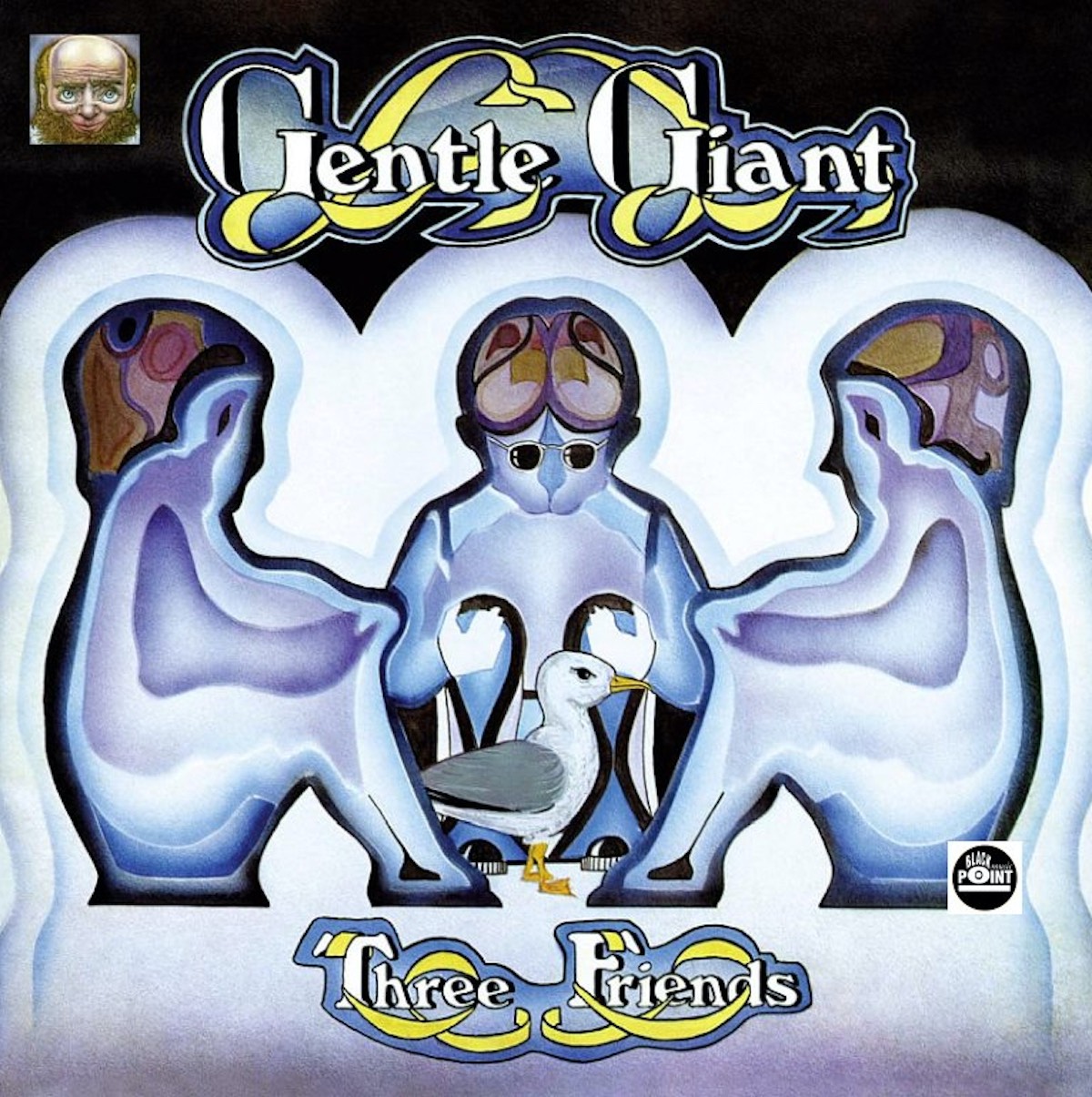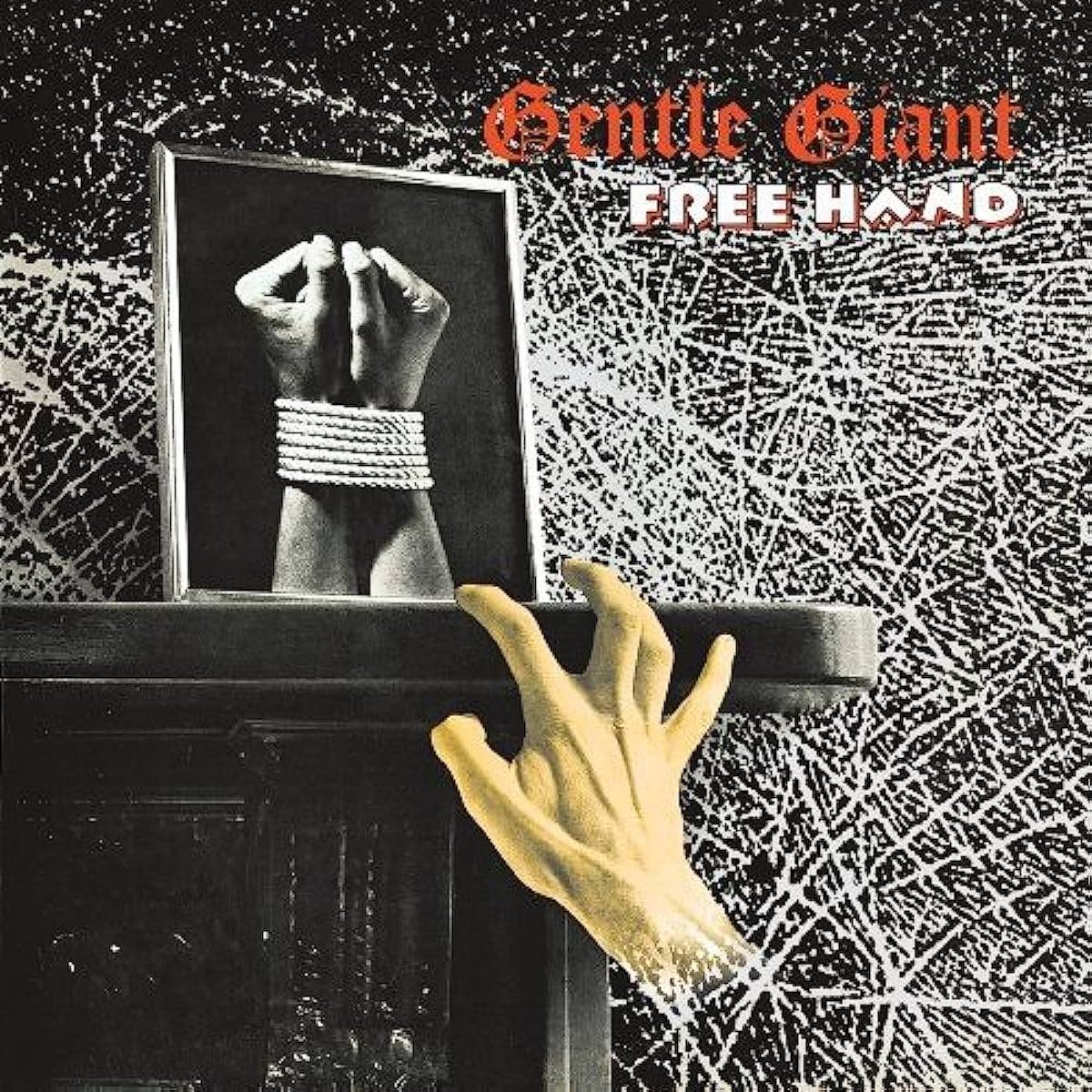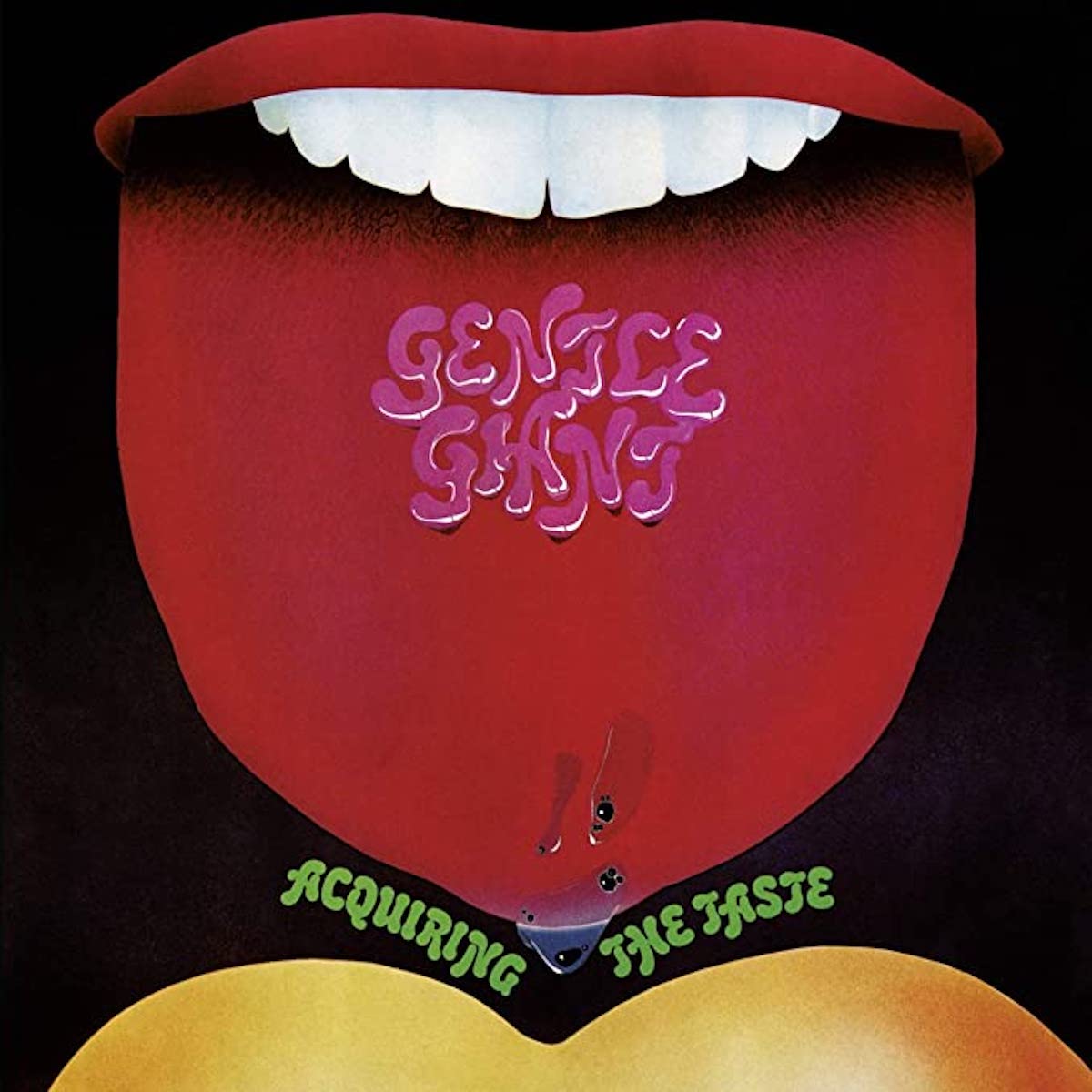The nasty critics of the past accused the Gentle Giants of proposing a pompous and baroque music, full of abstruse and long-winded medieval references; moreover, since each member of the group played a myriad of instruments, they considered them very virtuosic. In short, they were the emblem of everything rock shouldn’t be.
And to think that when their story began, the three young Scottish brothers Derek, Ray and Phil Shulman devoted themselves to a crackling rhythm’n’blues with Simon Dupree & the Big Sound, a band which, among other things, hosted for a brief period such Reginald Dwight before he launched a solo career under the name of Elton John. At the end of the decade they changed line-up and company name, the “gentle giant” arrived (complete with a detailed history of its origins contained in the first album) and the music began to sail towards the realms of progressive, making the imagination explode.
Reminiscent of the robust r&b scaffolding of past experience, Gentle Giant’s sound was above all full-bodied and passionate. Not a few moments in which it overflowed in a torrid hard rock assisted by the rocky guitar of Gary Green. At that point singer/saxophonist/bassist Derek Shulman grabbed the microphone and sent the band into full gallop. Opposite of him was the keyboardist / cellist / vibraphonist / etc. Kerry Minnear, gifted with a fairy voice that decorated the most visionary moments. Between hard rock and visions there was everything: one of the most successful amalgams of rock, madrigals for five voices that seemed like a thousand (one can believe that Queen listened to Gentle Giant a lot), jazz, folk and atonality.
The best Gentle Giants (ie those of the first seven albums) never gave up making their songs real puzzles with impossible rhythmic joints and arrangements that, if listened carefully, risk causing a sense of vertigo. Each instrument appeared and vanished, it was heard in one point and found elsewhere as if it had made a dimensional leap, a riot of sound fragments that went crazy in the acoustic spectrum making the coordinates get lost. Do we want to talk about the exciting funk-prog moments that often peeked out? Funk and the Middle Ages, kitsch stuff on paper, but cool in the parallel reality branded GG.
A word about their virtuosity: yes, they were champions, but they didn’t use such skills to display empty mastery. Every stunt served the tunes perfectly. As largely self-taught young people, raised in a proletarian environment, the Shulman brothers & co. they used their inspiration to spit all their unbridled desire to go beyond any barrier, social and musical, in the face, exploiting only their brilliant intuitions.
The Gentle Giants were short-lived, only ten years. Once the golden moment of prog had passed, they were forced to simplify their proposal more and more, since nobody wanted to hear those abstruse things anymore. A great pity for musicians of that ilk who, in fact, at a certain point, rather than bowing to prevailing tastes, preferred to throw in the towel. Their albums remain to make us understand what it means to take rock and upgrade it.

Even the cover, with the mythical giant reduced to a mask to cut out and wear, does not bode well. Listening to it, things turn out to be even worse. The fact is that Gentle Giant has nothing to do with the easy rock of this album. Of course, there are the choruses, the usual instrumental expertise and a few scattered surprises, but the songs cannot be heard.

The first misstep, the songs begin to be poorly inspired and there is a great desire to explore new paths. Unfortunately the widespread influence of certain American rock (with the approval of Derek Shulman, who in a few years will become A&R of PolyGram and will put Bon Jovi under contract) does not mix well with the sound of the group. In Give It Back they even try with reggae.

It’s the swan song of the group, but it represents the paw you don’t expect. Usual simplification of the schemes, but this time songs on average more centered, with a modernization to the sounds of keyboards and a positive rock / wave propensity that foreshadowed interesting future scenarios.

Lively and snappy, The Missing Piece does better than Interviews and shows the path taken by the Gentle Giants in the three-year period ’74-77: they don’t change their proposal much but make the usual sonic puzzles more accessible. Even if the good times seem to be over, the disc is fun, with Memories of Old Days that returns to the atmosphere of the past and lets a tear escape.
The Power and the Glory
1974

In the second concept the band begins to lighten up the sound. Here and there the first prog-funk dictates emerge, really tasty things with a Stevie Wonder-like Clavinet to create a sort of hybrid with pop that deserved better developments. Proclamation it’s a bowler hat that explodes when you don’t expect it with all the choirs of the universe.

The first album is never forgotten. And one cannot remain indifferent to the ancient charm that this work displays, at times it seems to smell the scent of certain legends of the English tradition while rolling a joint in the woods and sinking to the sound of funny ways, with an enchanted soul that at times expands into cosmic glimpses. Then the group explores assorted atonalities, minuets come to the surface, pay homage to the queen (the Queens keep ringing their ears) and get brutally pissed off in the manifesto Giant.

It is one of the most beautifully twisted works ever released, as well as the Gentle Giants most arduous and experimental test yet. It really takes genius to imagine pieces that are real enigmas and you never understand where they are going with, in which you risk getting lost easily. But the Gentle Giants are very good at weaving their thread of Ariadne and lead to the goal, stunned and incredulous. I say no more, I just invite you to enter the labyrinth.

The Gentle Giants arrive at their first concept album by staging the story of three friends with different experiences who at a certain point come together to analyze their existential paths. The disc has points of absolute beauty such as Schooldays, first nervous then impalpable and suspended, with a vibraphone that for a moment is jazz and soon changes into avant-garde. Then comes the seraphic calm and an angelic Kerry Minnear evokes scenarios of touching melancholy. Upon completion the title track ascends to the realms of mightier prog.

Experiment: put on On Reflectionsecond piece of Free Hand, and play it to someone who doesn’t know Gentle Giant. She will either curse you forever or fall madly in love with you. On Reflection it’s one of the craziest ravings of all prog, with polyphonic multi-part vocal harmonies, counterpoints, canons, singers splashing everywhere and when you’ve lost them they magically come back together. Then, while you are immersed in a sweet Renaissance dirge, they start with the rhythm and nail you. It is the supernova of the prog.

octopus is Gentle Giant’s “classic” album, the one most often mentioned and loved by fans. First in the Italian sales charts (while at home they were snubbed, like Genesis) and wrapped in an amazing cover by Roger Dean, the band’s fourth album is an excellent bignami of all the elements that characterize the group, from crazy madrigals to outbursts hard going even through a poignant love song (Think of Me with Kindness) revised according to their parameters.

Acquiring the Taste it’s not a record, it’s a treatise on alchemy. It is the image of a hallucinatory Middle Ages in which ghostly presences move on a puppet stage, with the music exploring sabbaths lost in the mists of time and then rising among the high naves of a Gothic cathedral. It is a nocturnal album, with a black cat that moves its soft steps among mysterious dissonances. There is no shortage of flashes of dazzling light, but it is an illusion, it is the supernatural climate that dominates, irreparably bewitching.

